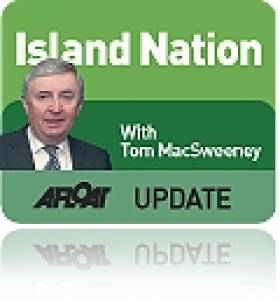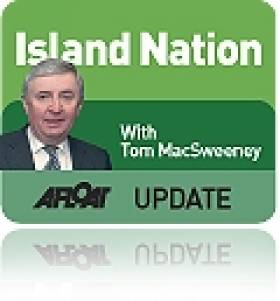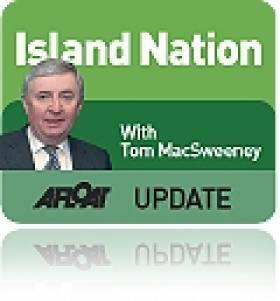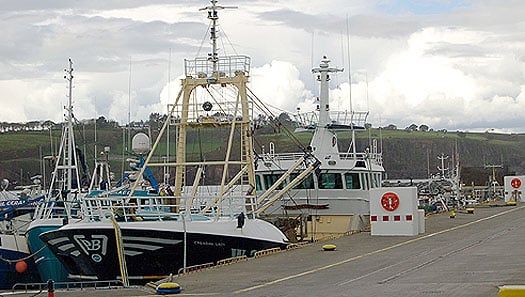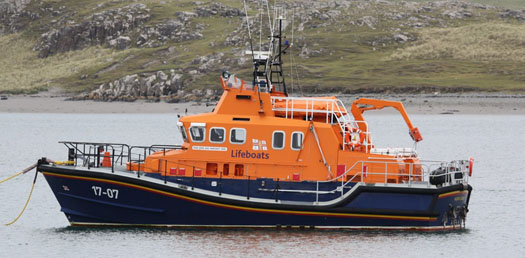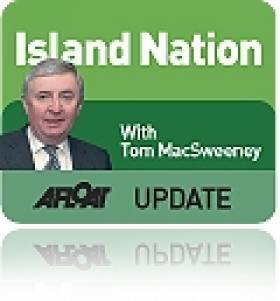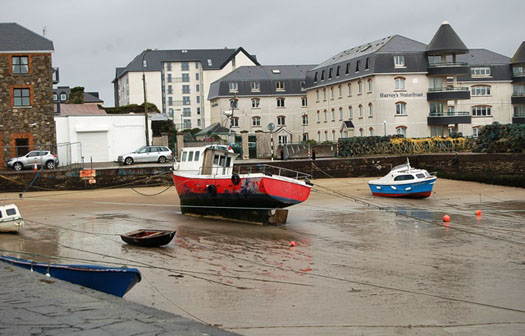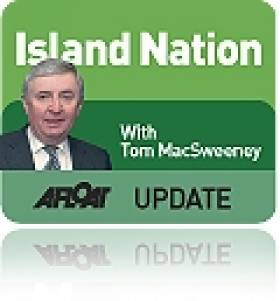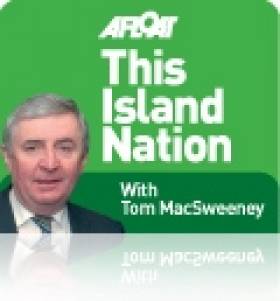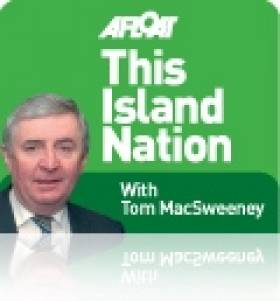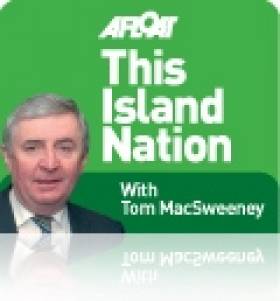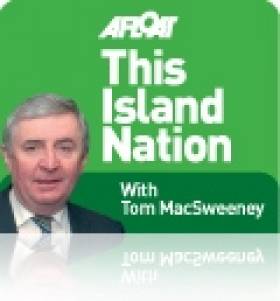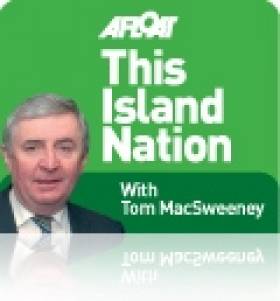Displaying items by tag: Tom MacSweeney
A New Maritime Safety Strategy But Will Irish Maritime Administration Listen or Dictate?
#seachange – The Government is planning a new maritime safety strategy. The Irish Maritime Administration, which is effectively the Coast Guard and other aspects of maritime transport within the Department of Transport, Tourism and Sport, has decided that Ireland needs a new maritime safety culture.
The IMA was established in 2013. It comprises the Maritime Safety Policy Division, the Marine Survey Office, the Irish Coast Guard, the Maritime Transport Division and a new Maritime Services Division. In an island nation which fully respected its maritime requirements these should be within a Department of the Marine, but civil service and internal politicking ensured that it was part of the break-up of maritime responsibilities within Government, despite promises that all maritime matters would be under one Department giving the maritime sphere a higher presence in Government and despite attempts by Marine Minister Simon Coveney to bring safety matters within his Department of Agriculture, Food and Marine
While safety at sea must be embraced, when government decides to draw up new or more regulations, it is time for examination of the motives and their aim. For example, single-handed sailing is not approved of by Irish officialdom. That French Figaro Race passing through Irish waters last week and all who like to sail solo are not in favour with Irish maritime authorities.
The Maritime Administration has decided to develop a new Maritime Safety Strategy – 'Sea Change – Building a New Maritime Safety Culture.' This, it says, "will focus on building a culture of safety and will target the main causes of casualties in the maritime sector."
It will cover all types of craft being used for any purpose on Irish coastal or inland waters, including recreational craft, fishing vessels, passenger vessels and cargo vessels.
That is very wide-ranging.
There have been 134 maritime fatalities since 2002 and Minister Leo Varadkar maintains that "almost half" were the result of leisure activities on recreational craft. He is trying to parallel his road safety approach to the maritime sphere, maintaining that roads are safer as a result of regulations. That opinion would not go unchallenged. While safety is an issue that must be treated seriously there has been an obsession amongst Government with imposition of regulations in all aspects of life where Ireland is possibly the most regulated country in the EU. There remains, at present, a freedom to use the waters around our island nation and, while emphasising the need for a culture of maritime safety, any attempts by civil service mandarins to impose more controls on that freedom should be examined closely.
"The sea and any open water can be hostile and dangerous environments and demand total respect," said the Minister. I agree and by consulting with stakeholders and the general public, it would be good to reach a situation where there are no fatalities. But the Irish Maritime Administration, by some of its previous attitudes towards safety, such as attempting to shut down Coastal Radio Stations at Valentia and Malin Head, has not inspired confidence. It did not demonstrate a willingness to listen to what it was told. It has shown a more dictatorial than responsive attitude to the views of stakeholders who have brought instances to my attention. There was, for example, the RNLI provision of lifebelts with a built-in radio alert safety system to which the Coast Guard objected because control was not direct to them but would have been via the lifeboat service. So there is reason to examine a desire for more regulations.
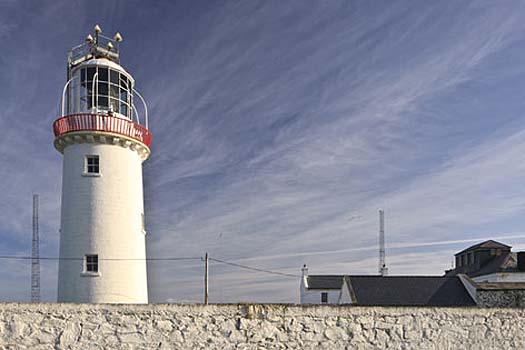
Loop Head lighthouse in County Clare
Notably, one of the points the IMA highlights in its reasons for a new maritime safety strategy is : Inadequate enforcement of regulations.
I support safety at sea, but long journalistic experience has taught me to always examine the reasons for the desire of government officials for more regulations.
The Minister has urged all stakeholders, and the general public, to engage with a consultation process open until August 29 and "to contribute their ideas to the Irish Maritime Administration.
One life lost unnecessarily at sea is one fatality too many.
One of the advantages of being an island nation is the freedom to go to sea, which is a freedom that imposes disciplines of safety on those who use our coastal and inland waters. Safety regulations are necessary but had civil service mentality been exercised in the past would there have been explorers of the sea, round-the-world voyagers and solo sailors?
I hope that this time the Irish Maritime Administration will learn the lesson of listening rather than dictating to stakeholders.
SAILING STRATEGY
There is a line in the Irish Sailing Association's Strategic Review which stuck out for me: "Racing currently forms the backbone of club activity." But is this too dominant in the sport which it appears is in a crisis of dwindling interest? The ISA has been described as a bureaucracy detached from the reality of what is going on and the new Strategy is an attempt to change that. I believe in the concept of sailing being a 'sport for all' as the ISA has previously highlighted. But can it ever be that when the perception remains of an elitist sport run by exclusive and at times unwelcoming clubs, a point which was forcefully put at this year's meeting of the South Coast Offshore Racing Association which I previously reported in Afloat?
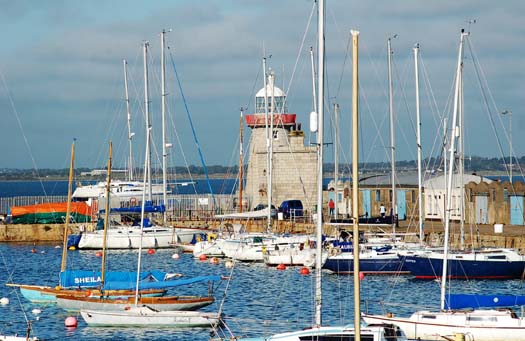
Howth Harbour in county Dublin, a popular boating venue
There are skippers who cannot find enough crew and some clubs have moved to try to accommodate this by offering crew memberships. But they may have to move further. A club structure is essential, so membership of clubs and income is vital to support them, but there are people whose only desire to go sailing may be one night a week racing when they would crew and who, in these economic times, may not be able to afford even 'crew' membership, but would crew a boat and add to the club's income on an even partial basis. While keeping an essential percentage of a boat's crewing to club members, perhaps clubs need to accommodate new styles and requirements of 'crewing' to increase the sport's popularity. The 'elitist' image, which has been fostered in the past by some clubs and their members, needs to be removed if it is to be "a sport for all" and club membership encouraged, as also that it can be for cruising and not just for racing.
THE DIFFERENT FACES OF SEA NATURE
I wrote about the nature of the sea and another example is the photos from Antarctica sent to me for my blog this week. They were taken by a lady named Lara Harrison, who was there as a medic. Look at them and reflect on what is happening in these areas due to global warming and why we all need to be conscious of the natural environment.
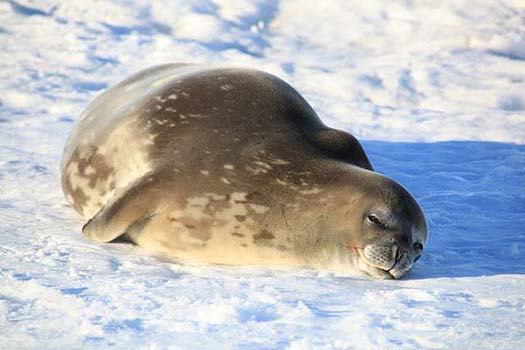
Nice cool day and (below) a bit crowded on this beach
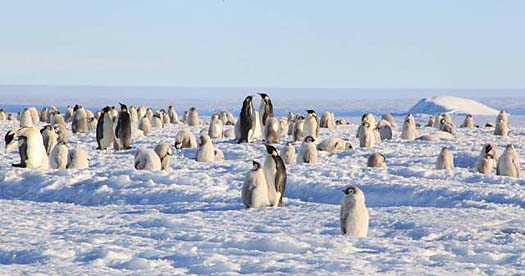
THIS ISLAND NATION ON RADIO
On the July edition of THIS ISLAND NATION monthly hour-long radio programme next week I will be talking to the last man alive from the islanders who were evacuated from the Blaskets. As a youngster he was described as "the loneliest boy in the world, whose only playmates are seagulls." I will also discuss with ISA President, David Lovegrove, the Association's new strategy; hear about Loop Head Lighthouse; a new five-man currach; the history of Kinsale Harbour and much more. The programme will be available here on the AFLOAT website and is also broadcast on Near FM Dublin 90.3; CRY 104FM Cork; and Raidio Corca Baiscinn, Clare 94.8 FM
Twitter: @TomMacSweeney
#islandnation – Entering Kinsale Harbour, east of the Bulman Buoy, is a prominent 200-foot cliff rising sharply above the sea. It is known as Hangman Point and was the location of a gibbet, a warning to everyone not to engage in piracy. Displayed there in 1675 was the head of one of six Irishmen who had murdered the Master and three crew aboard what was described as "a very rich ship," the St.Peter of Hamburg which had been bound for France. This gang sailed the vessel to the West Coast of Ireland where they were captured by the authorities led by Robert Southwell, Vice Admiral of Munster. Convicted and executed, their heads were displayed at different points along the coast, including one at Hangman Point.
The next time I am rounding the Bulman heading for Kinsale I'll take more note of Hangman Point about which I hadn't known a lot, though I did know of the roadside reminder out towards the Old Head of Kinsale of the female pirate Anne Bonney, another story of piracy from the locality. She was actually Anne Cormac, described as "a vivacious girl" who lived with her father, William, in a fine house on the edge of Bullen's Bay which was a haven for piracy on the south coast not far from Kinsale, providing a place to land stolen goods and get water and provisions.
She shared the maritime activities of the area, but her father was actually a successful Cork lawyer who emigrated from that area to the Carolinas in America where the doughty daughter was drawn to the sea, despite the best efforts of her father to steer her in other directions. This led her to falling for the charms of pirate and buccaneer 'Calico' Jack Rackham who was terrorising the coast of Bermuda.
Anne took to the life of piracy, engaged in it by boarding ships and capturing and looting them and was regarded as a tough fighter. Despite pregnancies, she had her children fostered to continue her cutlass-bearing life. Captured eventually, both 'Calico' and Anne were sentenced to hang. Because she was again pregnant she was reprieved and her last words to 'Calico' before he faced the hangman, according to legend were: "If you had fought like a man, you would not now be hanged like a dog!"
I am not sure I would particularly like such a female type aboard, but out towards the Old Head of Kinsale there is a roadside plaque reminding passersby of Anne Bonney.
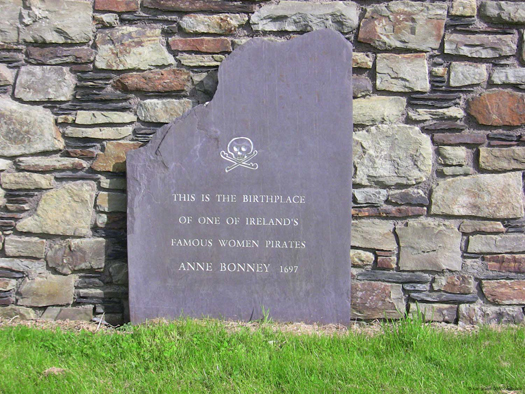
The story is told by John Thullier, well-known in the maritime world and in sailing after a lifetime involvement with boats. He is the retired Director of Kinsale Further Education College and steeped in the maritime tradition of the town. The College evolved from projects designed to introduce the maritime environment to students and providing training in marine skills.
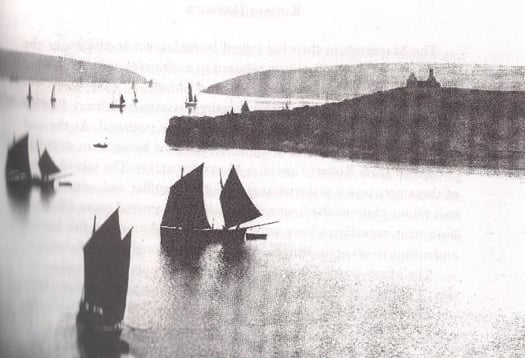
He has compiled the history of Kinsale Harbour and told me how, on walks around the seafront of the town with his grandfather who was a good boat builder timber needed would be spotted, with it all explained to him as a youngster about what a boat needed to be sturdy. John recalled to me how Sundays were the day of leisure, so the men would go sailing and, "in soft hat and with shirt and tie!" Those were times when there was a different approach to sailing clothing!
"Kinsale Harbour – A History," published by The Collins Press, was launched this week at Kinsale Yacht Club. In it John Thullier charts the history of a town now known best for its tourism and food, but which he says must retain its focus of being a port and a maritime location.
Nestling on the River Bandon as it sweeps to the sea, Kinsale emerged as a settlement in the 6th century and has seen many changes.
"Really there are three harbours here, the inner, the middle and the outer and Kinsale has changed over the years as it evolved to meet the many challenges," he said as we chatted overlooking the harbour from the front of the Trident Hotel where the statue of a fisherman, resting and thinking, reminds patrons that this too was once a big fishing port and still retains fishing boat activity.
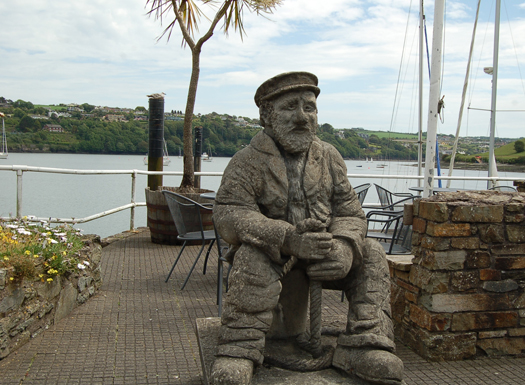
"The harbour has always provided a safe anchorage and prospered during the golden age of sail, victualling shops bound for the American colonies, the West Indies and trading with English and Continental ports. Many people will remember it for the Battle of Kinsale, but there is much more to the town and the maritime tradition is its main reason for existence. There was a Naval base to restrict threats of foreign invasion, there were pirates and smugglers, it was a shipping port, it evolved when the size of ships changed, it was a big fishing industry centre, that changed too as the industry and stocks moved. It still retains some fishing and it became a sea angling centre which gave it a new life.
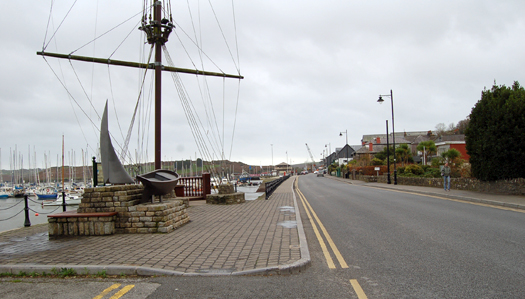
Now it is still very active in the marine, as a sailing centre. There have been difficult times here in Kinsale, but the way a town like this survives is to focus on what it has best, that is the maritime role, its maritime resources and facilities."
Even where we sat talking about Kinsale, where the Trident Hotel stands, he told me was once a dockyard.
"My mother's family was involved in the fishing industry, on my father's side the family were boatbuilders, owners and members of various boards and public bodies engaged in the affairs of the harbour.
"The story of Kinsale is the history of its connection with the sea. Everything about Kinsale is of the sea and so it should remain," says John Thullier, whose book about this major sailing location is well worth reading.
And if you want to know what happened to Anne the pirate, John Thullier says:
"No precise information is available about her after Rackham's hanging. There are reports that she abandoned piracy, was reconciled with her father, remarried and had eight more children."
I like a happy ending!
Twitter: @TomMacSweeney
#thisilandnation – There are 11 different storylines in this month's THIS ISLAND NATION programme here on the Afloat website, underlining the wide variety of maritime topics to be reported. They range from an exclusive interview with the head of the Sea Fisheries Protection Authority, the regulatory body for the fishing industry, to a reminder about Rosslare's involvement with the first use of Morse Code on a lifeboat in Ireland.
As well as those items Stephen Newton, Senior Conservation Officer for Seabirds with Birdwatch Ireland, discusses the importance of the observation of the rare Bermuda Petrel species off the Irish coast for the first time; an artist from a fishing family at Roche's Point in Cork Harbour describes how the sea inspires her painting; a former Coast Guard describes how he will be Ireland's only representative at the World Town Crier Competition; there is a reminder of how tough life was for dockers in Dublin Port; the €4m. export value of an Irish sea worm is reported and a man from the Waterford Estuary calls on maritime communities to follow his example in preserving traditional maritime artefacts.
Dunmore East fishery
The RNLI provides a regular monthly report, as do the Commissioners of Irish Lights who describe changes at Inisheer Lighthouse on the Aran Islands and the Chief Executive of Irish Water Safety emphasises the importance of teaching children how to swim. The national media does not give enough coverage to the marine sphere, but Afloat.ie and THIS ISLAND NATION do.
FISHERMEN WHO 'LOSE THE RUN OF THEMSELVES' WILL BE PROSECUTED
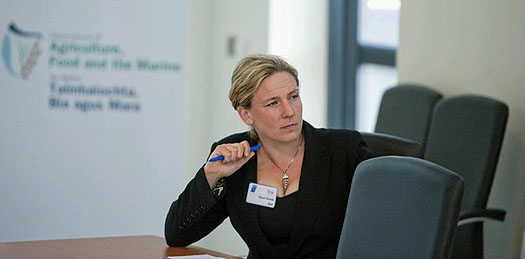
Susan Steele, IFPA
The Head of the Sea Fisheries Protection Authority wants to see "a thriving fishing industry and thriving fishing communities," but says that those who "lose the run of themselves" and engage in illegal fishing will be prosecuted. Susan Steele is Chair of the SFPA, effectively the senior executive and in an exclusive interview with THIS ISLAND NATION says she wants the fishing industry to understand that that the SFPA will always act fairly and with transparency. "The Authority's task is to do a good job for Ireland's marine communities to help ensure that they survive and thrive. As well as working closely with the industry with which we have a fantastic relationship, there are times when the SFPA has to carry out "enforcement actions to ensure that "those who lose the run of themselves are dealt with," she says.
A DIFFERENT WAY OF MIGRATION
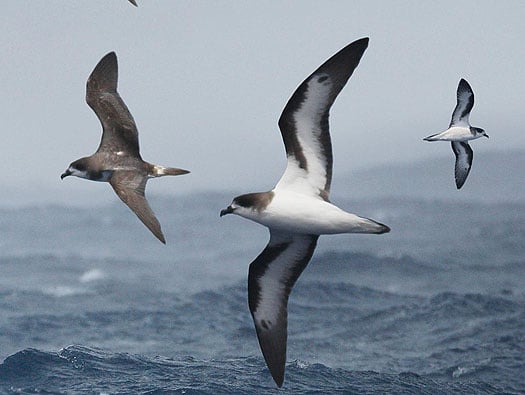
Bermuda Petrel – back off Ireland in search of food
The arrival of a Bermuda Petrel, a very rare species the future of which is under threat, off the Irish coast has caused considerable interest. Stephen Newton of Birdwatch Ireland indicates that this could be because of following fish for food. He also has an interesting insight as to why the Bermuda Petrel might be migrating the wrong way around.
A CENTURY AT VALENTIA
Valentia Island Lifeboat Station in County Kerry has been presented with a 100th anniversary Vellum. Last year the lifeboat there launched 33 times and saved 33 people. Niamh Stephenson from the RNLI has this and more lifeboat news on THIS ISLAND NATION.
INISHEER LIGHT CHANGES
The Commissioners of Irish Lights have made changes to the light displayed from Inisheer Lighthouse in the Aran Islands, introducing a LED (light emitting diode) which will be more energy efficient. Rory McGee, Engineering Operations Manager at CIL, reports the change on THIS ISLAND NATION.
DUBLIN DOCKERS
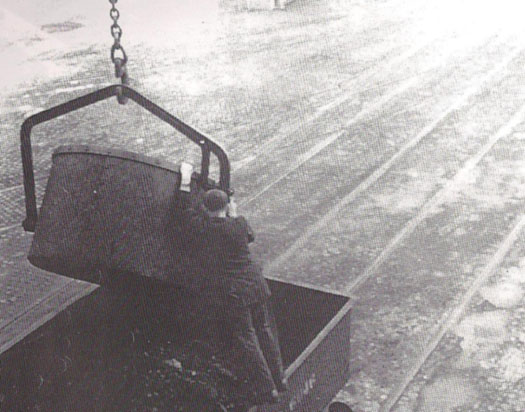
I referred in my last blog to the 'Songs of the North Lotts' about the communities living around the Dublin Port area and the collection of forty evocative songs by Paul O'Brien. There was considerable interest, so this month on THIS ISLAND NATION I am playing another of Paul's songs. This time he sings about the dockers who unloaded the ships and how they had to line up and hope to be chosen for a day's tough work.
VALUABLE SEA WORM
A sea worm that is worth €4m. is the description of the whelk which Sea Fisheries Protection Officer Liam Kennedy tells me about on the programme. They rarely make an appearance on Irish menus, but this large sea snail is highly prized in the Far East including: South Korea, Hong Kong, Japan, China and Singapore. The whelk fishery is important to smaller inshore vessels. Because whelks are susceptible to over-fishing, he is asking fishermen to "be responsible and not land undersized whelks."
COSTA SCRAPPING
The Costa Concordia is to be scrapped at Genoa in Italy to where it will be towed on July 20, according to latest information about the dismantling of this ill-fated cruise ship on which 32 people died when it hit rocks off Tuscany in 2012. An Italian consortium has been chosen for the demolition work over other bids which were made from France, UK, Norway, Turkey and China. Italian Government approval has yet to be given for the scrapping.
SPREADING THE WORD
I'm pleased with the number of people contacting me with opinions, news and views, since this programme and blog was launched. Your comments are always welcome.
Email: [email protected] or [email protected]
THIS ISLAND NATION AWARD
The national association of community broadcasting stations, CRAOL, at its annual conference presented the award for scheduled programmes to THIS ISLAND NATION maritime programme, produced at and presented from Community Radio Youghal, Co. Cork. Photo shows l. to r. Justin Maher, Station Development Officer, cry104fm Community Radio Youghal; Tom MacSweeney, Presenter; Declan Gibbons, Station Manager.
Twitter: @TomMacSweeney @Afloatmagazine
Rivers That Flow Through Our Cities Should Be Utilised
#thisislandnation – We don't make enough use of the rivers which flow through our cities. These ribbons of life to our major urban centres pass through the heart of the cities where the pressure of traffic and pedestrians shows more interest in the speed with which they can be crossed, often seeming to regard them as unwelcome blocks which require bridges, rather than appreciate that underneath those bridges is a system of transport and leisure which is neglected and often used by citizens for dumping of their waste.
There are some moves to utilise them more efficiently. On the Liffey there is a sightseeing tourist vessel and Poolbeg maintains its sailing presence close to the shipping sector. In Cork a voluntary organisation, Meitheal Mara, has promoted boating on the many different strands into which the city forces the Lee to pass through. Cork's city-based shipping operations have been diminished by the port which wants to end them altogether and move commercial shipping to Ringaskiddy where its public presence will be more limited and removed from the public eye. Waterford has based a marina in the city centre, but shunted its shipping to Belview where it is practically unseen by the public, so that the contribution of shipping to the economy is not perceived as strongly as it should be. Galway is a restricted tidal port, but a new one is planned and close enough to be seen by citizens. Dublin maintains port operations close to the city.
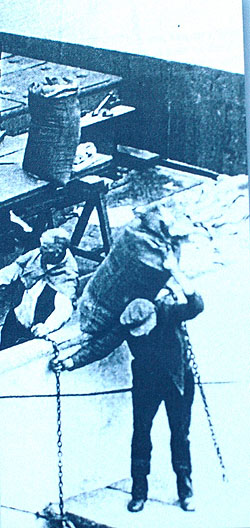
Dublin Port docker from the North Lotts book
There was a time when the ports and the rivers throbbed with life. In Dublin Guinness barges traversed the Liffey and there were real characters on the docks in all of our cities. Life could be tough as a dock labourer, but there was a great pride in the communities which lived around the ports and recognised the importance of shipping.
The East Wall has always been a proud Dublin community with seafaring a vital part of its tradition. On my programme THIS ISLAND NATION I played a song from a CD which was presented to me. 'Songs from the North Lotts' by Paul O'Brien capture a time in East Wall which deserves to be remembered. The East Wall Residents' Association which has been in existence for some fifty years, "maintaining and promoting the rare and wonderful community that it is an always has been," led the production of the book of the songs, dedicated to the people of East Wall and North Wall.
The song I played was "Taking the Boat," about which Paul O'Brien wrote in a book accompanying his CDs in 2009: "When I was growing up Dublin people didn't emigrate, they 'took the boat'. Single or married, it didn't matter. I don't personally know of any Dublin family that has not been touched by emigration."
There was a great response to the song, which you can hear on the Afloat website by CLICKING HERE. It was so good that in the June edition of the monthly programme, I will be playing another ballad from the collection – "Me Handsome Stevedore."
Tune in to hear it – next Wednesday night, June 4 at 7.30 pm on Youghal Radio – Community Radio Youghal 104FM or on their website www.cry104fm.com or if you are in the Dublin area, tune in to NearFM 90.3 on Friday night, June 6 at 6 p.m. This is another station joining the "family of the sea."
There was an interesting comment on the May edition of the programme by Jim O'Donovan, Director of Environment and Recreation with Cork City Council, who compared the better environmental condition of the River Lee to the Liffey, particularly around Heuston Station, about which he was quite critical.
Click HERE to listen to him on the Afloat podcast of the programme.
MARINE COMMUNITY GROWING
Waiting for the tide at Youghal in County Cork
Community radio stations around the country are showing great interest in the marine sphere and counteracting neglect by national and local commercial radio. I met many of these voluntary broadcasters at the annual meeting of their national organisation, CRAOL, over the past weekend in Youghal. They have produced and broadcast programmes on a wide variety of marine topics. THIS ISLAND NATION, was amongst the winners in the annual CRAOL national awards, chosen by the broadcasters themselves. I am pleased that the description "this island nation" is heard being more widely used in general conversation, by the media, in politics and in business. Awareness of the marine sphere is growing.
WHELKS, BIRDS AND FISHING
I didn't know a lot about the Irish sea snail which is worth around €4m. a year in exports until I talked to Liam Kennedy from the Sea Fisheries Protection Authority who wants fishermen to protect them. I will be broadcasting that interview in the June edition of THIS ISLAND NATION radio next week, as well as an exclusive interview with the Head of the SFPA, Susan Steele. She tells me that she wants to see "a thriving fishing industry and thriving fishing communities," but warns that those who "lose the run of themselves" and engage in illegal fishing will be dealt with speedily and effectively because they damage the future of the fishing industry. I will also be talking to Birdwatch Ireland about the arrival, for the first time, of one of the world's rarest sea birds off the Irish coast.
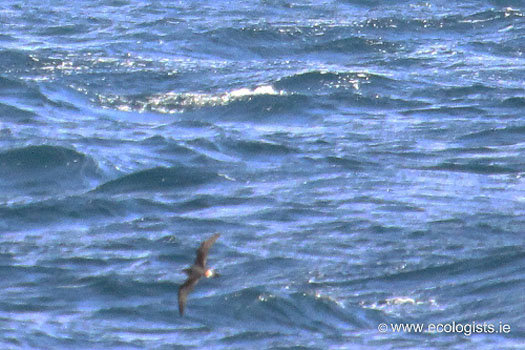
This is the Bermuda Petrel, an endangered species, of which there are only 108 breeding pairs known to exist.
WOMAN WITH CONFIDENCE
"We've never sailed in Cork before, but we're quite confident anyway." That's the view of the top woman match racing sailor, 32-year-old Camilla Ulrikkeholm from Denmark, who will be at the home of sailing, the Royal Cork YC in Crosshaven, for the ISAF Women's Match Racing World Championships will be staged there next week.
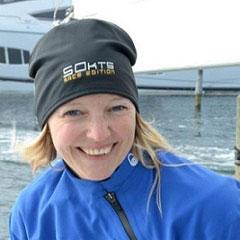
Camilla Ulrikkeholm from Denmark
The event will start on Tuesday and continue until Sunday, sailed in the ISA J80s fleet. "We've done a lot of research about the venue, we know the boat very well and we're definitely as tuned together as a crew should be. We'll just handle it the same way we usually do - arrive early to spend a day finding out all the practical details, then do some practising and get to know the boat and work our way into the regatta by using the first matches to learn about the local conditions."
That's confidence !
SHIPPING RECOVERY UNLIKELY
The Chief Executive of A.P.Moeller-Maersk Company has indicated that there will not be a sustainable recovery in the shipping industry in the short term. Nils Andersen is quoted as saying that "there is lingering overcapacity" which may remain until 2017. The Irish Maritime Development Organisation in its Weekly Market Review says that "the idle containership fleet" has gone below two per cent of the overall fleet for the first time since last September, but the global tanker market is experiencing low rates with the crude sector suffering particularly and providing only very low earnings for owners. The European Short Sea Bulk market is also experiencing a downward trend which has been developing since April.
BALTIMORE MARITIME COURSES
Baltimore Maritime Centre was formed in December 2013 by a nucleus of members of Les Glénans, following the closure of the Glenans sail training base in the village. It has acquired six of that organisation's keel boats and will start sailing courses this Summer in conjunction with Heir Island Sailing Schull and Baltimore Yacht Charters.
Twitter: @TomMacSweeney and @Afloatmagazine
#thisislandnation – After an absence of several years it is a pleasure to return to the airwaves, a decision I have taken in pursuance of my belief that the national media is seriously neglectful of maritime matters. The marine sphere is not adequately served by the national media, print or broadcast. The specialist media such as AFLOAT and community radio offers an alternative voice, so do social media outlets.
THIS ISLAND NATION is a monthly hour-long radio programme of which the first edition available here on Afloat.ie highlights the decay forced upon coastal communities by government and EU policies.
Sean Doherty, who I interviewed for my programme at the 'EMPOWERING COASTAL COMMUNITIES' Conference in County Waterford, is a man who is trying to preserve his local community at Cheekpoint on the Waterford Estuary. He describes how the ending of the drift net fishery, followed by the closure of the eel fishery, has contributed to what he sees as the destruction of his community. Men earned a living from the fisheries for their families, others were employed to maintain engines on the boats, more had work repairing the fishing boats and local restaurants served their catches as local produce. But these aspects of life in Cheekpoint no longer exist. The village has suffered heavily. His interview indicates how decisions were made by politicians and State administrators without carrying out any examination of the social effects and the damage they would cause to the communities affected. Those communities were treated with disregard and what amounts to contempt for their future. It is a sombre story.
The oceans are, in places, a wilderness, sweeping the globe and washing the edges of our cities. They provide opportunity and potential. The coastal communities are the first interface of Ireland with the sea at the coastal rim of this island nation.
So why is it that the sea is not regarded as a priority national interest?
The answer lies in a failure of political and economic perception, fuelled by an adherence to globalisation rather than pride in being an island nation.
Ireland is the most western island nation in Europe, but there is no pride evident in Government circles that we Irish are islanders. At the highest level of political life and civil service administration, as well as amongst the national media and the general public, there is a failure of perception to realise that being islanders gives Irish people an unique place in Europe. The concept of globalisation, which policies favour, is the destruction of uniqueness.
As Sean Doherty says in the interview, there are publicly expressed concerns and movements calling for the protection of indigenous communities around the world; and for the promotion of multi-culturalism in Ireland; but there is little or no interest and no movements for the preservation of the indigenous people of Ireland –the coastal and fishing communities.
The voice of the sea can speak to the soul, that voice should be heard by those who make the decisions which affect Ireland.
While there are some positive steps, which are also outlined in the programme - THIS ISLAND NATION - which you can hear on this website, these are not enough to counterbalance neglect of the maritime sphere. More is needed.
Cheekpoint nestles in the Waterford Estuary near where the Rivers Suir and Barrow meet, lying beneath Minaun Hill and has a magnificent, panoramic view across Waterford Harbour.
Sean Doherty described himself to me as an angry, frustrated man at what he sees as he looks out from his home on the estuary, "because what I am seeing is destruction caused by a form of blindness."
The Prong is the local boat which has been used by fishermen from the village. The first one built in many years is pictured below, together with an example of an older boat. The coastal communities are endeavouring to maintain their maritime heritage. So should the nation.
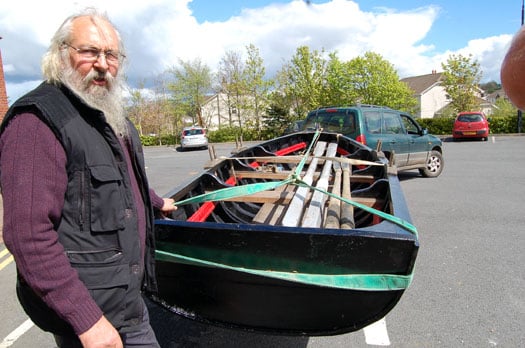
Above John Gossip with the new Cheekpoint Prong and below an older example of the craft
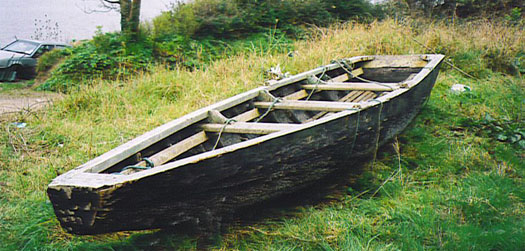
Twitter: @TomMacSweeney
What Does the ISA Do for Me, as a Club Member?
On THIS ISLAND NATION this week... I take the view that every sport needs a national association to lead its development. So Ireland needs a national sailing association. How a national association serves its members must be the definition of its success. A national sport can also benefit from the oxygen of international competition, offering opportunities to raise the national reputation and the team and/or individual involved. The representative organisation must not lose touch with its base, the local club, the local member. Is there a dichotomy in this regard between the drive for international success and the state of sailing in Ireland?
Next Saturday's planned meeting in the National Yacht Club in Dun Laoghaire, following on the raising of issues about the development, future and existing state of sailing in Ireland at the annual general meeting of the Irish Sailing Association (ISA), has a lot to discuss.
The national sailing authority has been challenged on several fronts, ranging from whether the drive for international success has neglected the sport locally, to its administration, whether the ISA was correct to embrace motorboating power within its remit and other aspects of the state of sailing in Ireland today.
I have an open mind on the issues raised, but the challenges issued must be answered, one of which appears to be the relationship of the ISA to the local club member, which has been the subject of debate.
"What does the ISA do for me, as a club member?"
How often I have heard that question raised and also the answers given – amongst them that, without it, there could not be national championships; would not be international recognition of Ireland; matters of regulations; issuing of certificates and many others, as well as criticism that the ISA has moved too far from its base and become involved in matters extraneous to the sport of sailing.
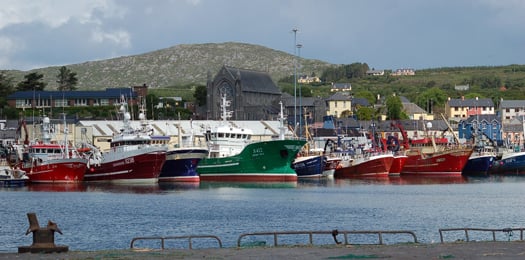
Bring back buying fish locally
WHAT'S THE CATCH?
"This country is sodden with regulations" a comment I have heard quite often and which has a degree of truth. In the course of the present food controversy over horsemeat I remembered the days when it was possible in a fishing port to buy fresh fish off the boats as the landed. Regulations imposed by the omnipresent "health and safety," often seen as an abuser of freedoms, has prevented that opportunity, to which one can hearken, particularly in these times of industrial-food operations which have led to the horsemeat issue.
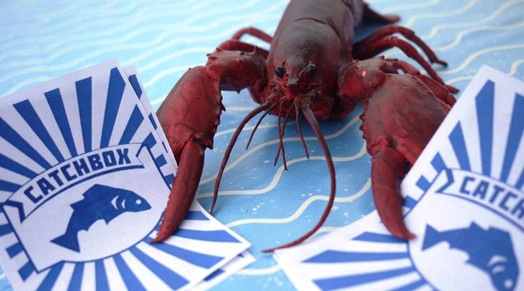
Catchbox
On Wednesday of next week, March 27, a "community-supported fishery" project is to be launched at Brighton in the UK. "Catchbox" is the first project of its kind, intended to provide local fish at a fair price to both fishermen and consumers, ensuring a sustainable market for a variety of local fish. Members of the scheme pay a fee to join the project at the beginning of the fishing season and are entitled to a share of participating fishermen's catches each week, based on a set weight. Local restaurants, fish shops, cafes and domestic consumers are entitled. Members will also get together for cookery demonstrations. The idea comes from North America where community-supported fishery schemes are popular. Could they spread so that we could get back to the days of local people being able to buy locally-caught fish rather than the present industrial-type food system which has produced situations such as the horsemeat controversy?
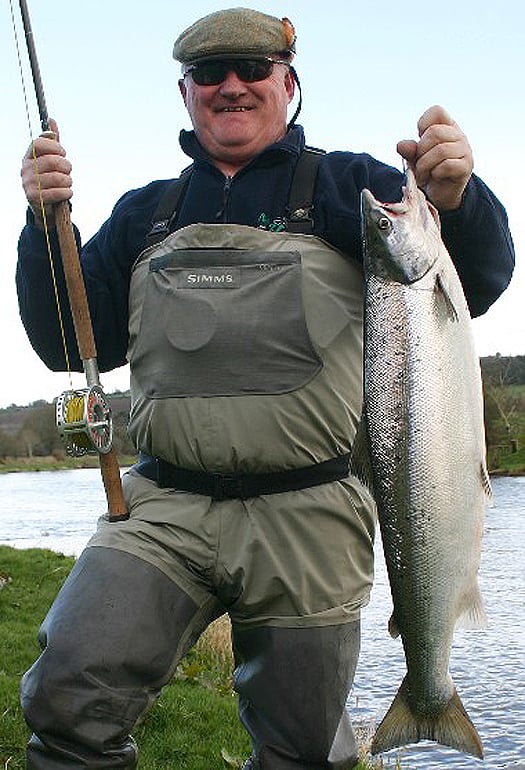
Salmon on the Blackwater - a catch by Terry O'Keeffe from Midleton
SALMON RISING ON RIVER BLACKWATER
Ian Powell of Blackwater Lodge down South in the Cork/Waterford border areas is in happy mood this week after some good catches of salmon, amongst them the one pictured here which Terry O'Keeffe from Midleton caught. Ian describes the catch: "Terry came to the Lodge at about 2.30 p.m. I sent him to Kilmurry. At 4 o'clock I had a call from him to say he too had a springer on fly after only an hour fishing. (Another angler had also taken a good catch earlier in the day.) I grabbed the camera and headed for the scene - the Hut Pool on Upper Kilmurry. Duly photographed, I brought the fish back to the Lodge where it tipped the scales at 10.3lbs. Terry's fish fell to a fly of his own tying fished on a Sink 1/2 Loop Custom Shooting Head made by Glenda. Both fish were extremely fresh but neither had sea-lice which could well mean that fish are moving through only very slowly and that there are probably a reasonable number about."
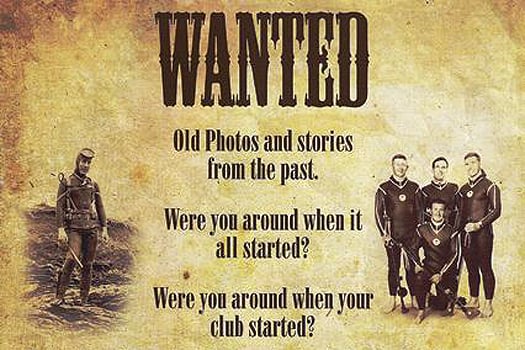
FIFTY YEARS OF DIVING
CFT, the Irish Underwater Council, is to make its 50th anniversary this year with a celebration dinner at the City North Hotel, Gormanston, Co, Meath, on September 15, which will also be the publication date of a special newspaper chronicling the history of the national diving association around the country. All clubs are being asked to provide "pictures and stories and we are also looking for old video or cine-camera footage covering any diving event."
Contact CFT at 78a Patrick Street, Dun Laoghaire, Co.Dublin – phone 01 2844601 or Email: [email protected] if you can help.
CRUISE LINES PROSPER DESPITE TROUBLES
Despite fears of a downturn after the Costa Concordia disaster the cruise ship industry has shrugged off bad publicity, dealt with the imposition of new regulations and survived a weak world economic situation to continue making profits. That is according to the Florida, USA-based Cruise Line Industry Association which has set-up a "one worldwide voice" for the industry. The United Nations' body for safety at sea, the International Maritime Organisation, is to implement a unified policy for lifeboat muster drills for passengers, but that may not come into effect until the middle of next year.
CLIMATE THREAT TO SEWAGE!
Sewage in the water is not pleasant and in the USA where issues can take peculiar turns, environmentalists are objecting in Miami to plans which the local authorities say are vital to impose because of fears that climate change could drastically affect sewage treatment plants in Miami in southern Florida. Scientists there have warned that the three major sewage plants serving the area could be "reduced to shrinking islands in less than 50 years" due to rising sea levels which will threaten the region's vital facilities. As a result local authorities have announced a $1.5 billion plan to improve protection of the existing plants. However the main objectors are environmentalists who want the plans moved inland, but residents in suggested alternative locations are in turn objecting to that!
Email: [email protected]
For regular Marine News follow on Twitter: @afloatmagazine @TomMacSweeney
How Government Misled Maritime Public, Respect for the ISA & the Unluckiest Ships' Captain?
#islandnation – On THIS ISLAND NATION this week... How the Government has misled the maritime public ... The unluckiest Ships' Captain? ..... What about this collision in Singapore! Have you checked your marina's ladders? And much more...
Government reform to make its administration more efficient and supportive of the maritime sector is urgently needed. It is time that political parties are required to deliver on the promises they make when seeking election. They have been allowed to mislead the public for too long in this regard. This is what Fine Gael promised in its General Election Manifesto under the heading "Steering the Marine":
Marine Department
Marine and fisheries policy is currently spread across three Departments. Fine Gael will merge these responsibilities under one Department for better co-ordination in policy delivery
But the number of Departments across which the marine is spread has increased to five since Fine Gael and Labour took over Government. There are five Ministers and a similar number of Ministers of State with have responsibility for aspects of the maritime sphere. When they concluded a pact for Government, Fine Gael and Labour indicated that it was their agreed view that maritime matters should be brought under just one Department. Surprise, surprise, where political promises are concerned, this was not implemented. Instead the situation has worsened.
How can the Government be so blind to the potential of the maritime sector? Would this not make you wonder about how efficient it is in protecting the interests of this nation in development of our offshore resources?
HAVE YOU CHECKED YOUR MARINA'S LADDERS?
The wife of a friend of mine slipped between their boat and a marina in going ashore and fell in the water. There was no marina ladder anywhere in the vicinity and he had to get help from others on the marina to pull her out and onto the marina. Shocked by what had happened he walked the entire marina and could not find a single safety ladder which would help recovery in such an emergency. This marina is in Ireland, he told me. Have you checked your marina?
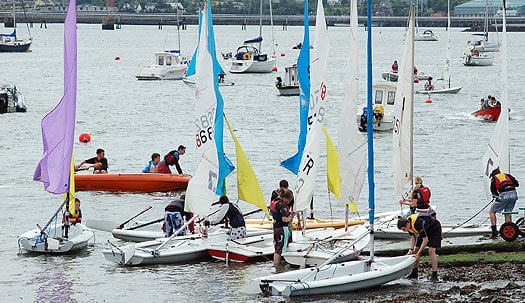
Youth dinghy sailing
RESPECT FOR THE ISA
"A national sailing authority must command the respect of those it serves to do its job efficiently. If it doesn't, it can't." That comment is one of several I have received since the future of dinghy sailing was discussed at the annual general meeting of the Irish Sailing Association. "A long, slow decline in the sport which has, as its root cause, bad policy decisions taken at ISA level," is a serious accusation, carried in reports from the meeting, another aspect of which struck me was that there were just 80 delegates reported present. That number does not strike me as strong representation of sailing clubs around the country.
In recent years it has been comfortable to be told that sailing was expanding rapidly and I have seen more youngsters taking part, but what was raised at the ISA a.g.m. does cause concern: "We need face some realities. It's always dangerous when an organisation starts believing its own public relations." That is another quote I have seen from the meeting. I was out of the country when it took place. A challenge has also been raised by Norman Lee from Wicklow and Bryan Armstrong from Sligo about the inclusion of "power" in the 2006 amendment to the ISA's objectives: "Is it a coincidence that what we see as the rot started around 2006? We make no apology for our interest in the sport of sailing meaning boats powered by the wind and this is what we want the ISA to refocus on."
The ISA has been directly and seriously challenged. It is up to the Association to earn the respect of the sailing public.
UNLUCKY OR CARELESS CAPTAIN?
The most unlucky Ship's Captain about whom I have heard is named Captain Rochfort who commanded two ships which went on the rocks in two months!
Both were steamships and seem to have been pretty close to shore when they hit rocks. The first, the iron paddle steamer Minerva, had a hundred passengers and twenty-two crew aboard and was reported at full speed on the evening of August 29, 1854 en route from Liverpool to Cork but too close to the rocky islands known as the Skerries off Anglesey in Wales. Captain Rochfort ordered a change of course but the vessel struck the Victoria Rocks, took water and began sinking. All aboard got off safely. In subsequent reports, the Captain was praised for his actions as the ship was abandoned.
However the attitude towards him changed two months later when he came under severe criticism and investigations were demanded into his handling of the Ajax, an 800-ton paddle steamer with 400 h.p. engines. She had 300 people aboard en route from London and was also sailing too close to the shore. She struck "well-charted rocks" near Plymouth. Other ships came to the rescue and all aboard were saved.
The two shipwrecks were a disastrous period for the Cork Steam Ship Company which operated services from Liverpool and London. This intriguing story is told by Ronnie Herlihy in his book, 'Tales from Victorian Cork.' The company offices can still be seen on Penrose Quay in the city.
NOW WHAT ABOUT THIS EXAMPLE OF COMMAND?
Having read about Captain Rochfort, I saw this example of command (above) which happened on March 3 in the Straits of Singapore, a very busy transit point for shipping, when a smaller vessel began going to port and getting closer and closer to a bulk carrier. Listen to the audio on the bridge of another ship as the incident was filmed and, despite all the warning soundings of hooters and horns, a collision occurred. The Singapore Coastguard reported that there were no casualties, but there was serious damage to the smaller ship. Investigations are continuing.
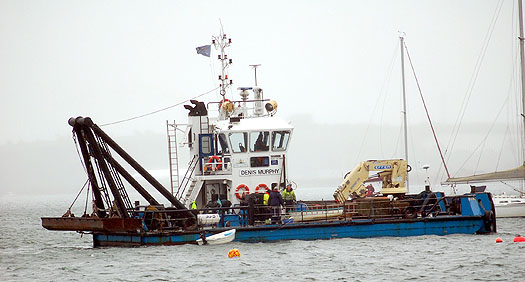
Cork Port vessel inspects mooring buoys
MIND YOUR CORK BUOYS!
If you own a mooring in Cork Harbour take careful note that from this Monday, March 11, Cork Port Company intends to begin removing all "unauthorised, unpaid or illegibly marked moorings". It seems a bit early to be doing this as many leisure boat people don't become active until April/May and some not until June. I put this to the Port Company which responded: "The routine of checking moorings has always been undertaken during this time of year by our staff, but also continues during the season. As you pointed out, it may seem early in the season, however, we find the most suitable time to undertake this activity is when unauthorised moorings are free of boats. We note from past surveys that genuinely responsible mooring holders keep a regular check on their mooring throughout the year."
So, you have been warned!
DUNMORE EAST RNLI CHANGE
In Dunmore East, County Waterford, Michael Griffin has taken over from Joefy Murphy who retired as Coxswain of the local lifeboat after 14 years in the position during which he was involved in many emergency services. Joefy had been on the lifeboat crew since 1997, a great record.
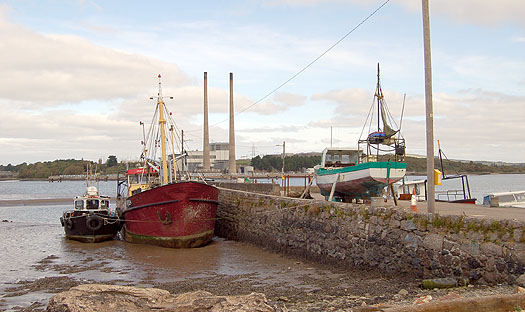
Cheekpoint pier
WATERFORD ESTUARY FISHING DECISION NEEDED
Fishermen in the Waterford Estuary who decided not to take compensation but to hold onto their traditional drift net salmon licences have suggested that salmon stocks in the Nore, Suir and Barrow, which feed the estuary have recovered enough to allow access to their traditional fishery at Passage East, Cheekpoint, Dunmore East, Ballyhack, Duncannon and Arthurstown. The economic and social effects of the banning of drift net fishing on fishing communities in these areas has not been adequately examined.
Email: [email protected]
For regular Marine News follow on Twitter: @Afloatmagazine and @TomMacSweeney
#islandnation – This week...Steamship history from a small town in Cork Harbour...Coastal areas deserve State support for development projects to create jobs...Ice on the river...Grant Dalton blows his cool on America's Cup hypocrisy... Indian sharks have gone missing and more...
Passage West is a town with a great maritime tradition on the edge of Cork Harbour, so what could be more natural than revival of its fortunes coming from the River Lee which caresses its shoreline on the way to the sea? The town has suffered quite a bit from the economic downturn and areas of it look decayed these days, but there is no decay in the memory of the connection of this town with maritime history. It would be fitting were it to become one of the main locations for this year's Gathering events when the 175th anniversary of the first steamship crossing of the Atlantic is commemorated because it was from this town that the crossing started when the ship, Sirius, was commanded by a local mariner.
These days there is still a shipping berth operated in the town off which sailing vessels once transferred cargoes into lighters to carry the loads upriver to Cork City. Much of the maritime hardware, the dockyard and other ancillary facilities have disappeared into the shrouds of time.
Occasionally the town is confused with Passage East on the River Suir in Waterford. Once Passage West had a small ferry operation serving the workforce across the river at what was then the big NET Marino Point State fertiliser factory. Perhaps appropriately, at the steps where that ferry landed onto Railway Quay and where once a railway operated, the Passage to Monkstown River Users' Association has proposed using a block and chain mooring system to locate a pontoon and access gangway 20 metres out from the shore that would be usable at all stages of the tide without requiring dredging. The Associations is an example of an active, local community wanting to use the maritime history and resources of an area to provide economic development in these difficult times. There are several such-minded communities around the coast. What they need is more State and local authority backing and practical financial support. Investment in maritime projects will be a key to the future.
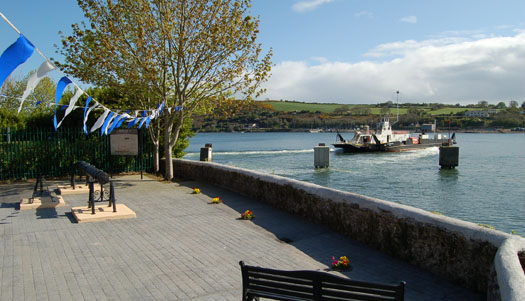
Sirius commemorative site in Cork
"With the development of Spike Island and Fort Camden and more realisation of the value of Cork Harbour's amenities, there is still not enough access to the river. What we want to do is change that, without costing a great lot of money," they told me. As part of this they will hold a week-long Maritime Festival starting on May 17 to mark the 175th anniversary of the of the Sirius voyage from Passage West to New York in 1838, the first ship to cross the Atlantic under steam power. She was commanded by Lieut.Richard Roberts a native of Passage West. It will be a fitting part of this year's national 'Gathering' Project and include a maritime exhibition, water-based activities, rowing and yacht races, safety and rescue demonstrations, a historical exhibition about the Cork/Blackrock to Passage West Railway and onshore events.

Sirius
Passage West Town Councillor Angela Murphy, a member of the Organising Committee, says they are seeking exhibits – historical documents, photographs, craftsmen's tools, items associated with the railway, ship building/repair memorabilia, ship models for the exhibition "all of which will be safely returned."
Further information from 087 1357634 or Email: [email protected]
YOU WON'T FACE THIS IN IRELAND!
Walking along the riverside in Fredrikstad, a port city about two hours south of Oslo in Norway at the weekend, not far from Swedish waters, I enjoyed the sunshine and heard locals say that Spring was coming and soon the covers would be taken off the boats moored along the river and leisure sailing would begin again.
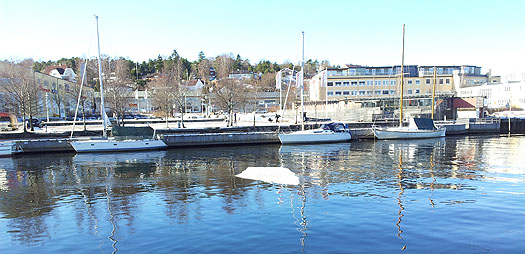
Ice on the tide
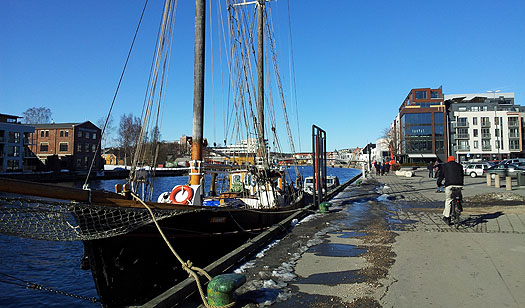
Norwegian riverside sailing history
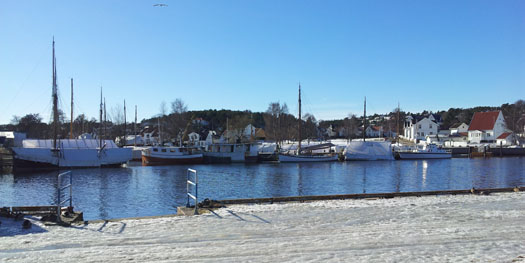
Winter river moorings in Fredrikstad
A boardwalk leading onto a paved area, with seating, restaurants and bars, even a theatre and a free cross-river ferry to the older, historic fort area of the city which once protected the waterway, all underline how Norwegians value their maritime resources. While moored, covered leisure craft are not used in winter, there is still essential river commercial traffic, while all around the Norwegian coastline boats are a more essential part of transport than cars. From across the river at Fredrikstad I could hear the sound of work emanating from boatyards and reminded myself than once I got home it would be time to begin my own plan for getting the boat ready! Along the riverside historic vessels mingled with the modern. A lovely place to walk, to muse, to enjoy. What a pity we do not have similar city-based attractions in this country.
One aspect of maritime life in Norway that is not likely to be experienced here is the sight of ice floating down the river! Even as Spring approaches - and they do have clear weather seasons in Norway – upriver areas were still frozen over.
BIOLOGISTS WANTED
The Coastal & Marine Research Centre at University College Cork is looking for four experienced biologists to work on a marine mammal monitoring programme on the west coast of Ireland - a project leader, senior field assistant and two field assistants
Under a development plan for the CORRIB gas field off western Ireland, Enterprise Energy Ireland Ltd. commissioned the Coastal & Marine Research Centre at UCC to conduct an independent cetacean monitoring programme on the northwest coast in 2001 - 02. Following preliminary field surveys the study was expanded to include other marine mammal species recorded in the area. Research was undertaken in Broadhaven Bay County Mayo and adjoining coastal waters. The programme of marine mammal monitoring was continued in 2005 and has been on-going since 2008 during the CORRIB development's marine phases. Research is being extended until at least May 2014. The marine mammal monitoring programme is grant-aided by Shell E&P Ireland through RSK Environment Ltd.
INDIAN SHARKS GONE MISSING!
The Indian Ocean Humane Society International claimed this week that the shark population in the ocean has been decimated by unchecked trading in shark fins. Together with other conservation groups it is urging the Indian government to take action to protect the endangered sharks and rays when the Convention on International Trade in Endangered Species meets in Thailand next month. India should have an important role in global shark management and conservation because it is regarded as second in the world in catching sharks according to conservationists.
GRANT DALTON BLOWS HIS COOL
Team New Zealand boss Grant Dalton seems to have blown his cool a bit over the America's Cup World Series regattas which are sailed in the AC45 catamarans. The Series has been regarded as a bit of a sideshow to the main event in San Francisco later this year which will be sailed in the larger, super-powered AC72 cats. Rivals Oracle and Artemis have been accused by Grant of "hypocrisy" because they have named under-strength teams for next month's World Series regatta in Naples, the last event of the Series before the 'real one' starts in July. An interesting use of the word "hypocrisy" by Grant, considering that late last year Emirates Team New Zealand for the Americas Cup was reported as having planned to boycott two world series events scheduled for New York next June. Dalton was reported then to be describing the 'AC World Series' as a distraction from the real AC72 sailing programme and, as a result, that he would send a youth team to New York to compete under the Team New Zealand banner. The New York regattas have since been cancelled, but Dalton was criticised by the event organisers for lack of support! The 'World Series' was considered vital to building the profile of the America's Cup itself leading up to San Francisco. Nice little controversy to excite attention!
Email: [email protected]
Regular news on Twitter from @afloatmagazine and @TomMacSweeney
Coastguard Warns of Putting to Sea Alone. Where is Ireland's Maritime Government?
#islandnation – On THIS ISLAND NATION this week – an island nation without a maritime government ... Coast Guard doesn't seem to like solo boaters.... Whispering to sharks ... Scrapping the only nuclear container ship and more ....
Safety
COAST GUARD SAYS NO ONE SHOULD GO TO SEA ALONE
The conclusion of the Vendee Globe, the world's toughest single-handed offshore racing around the world, highlighted the ability of sailors to overcome problems when alone, particularly the seamanship of French yachtsman Jean-Pierre Dick in Virbac Paprec 3 who sailed the last few thousand nautical miles without a keel. In most monohulled yachts that would have been the end of the boat, a capsize would have followed. But he kept his boat upright using water ballast to reach the finish line at Les Sables d'Olonne in France.
The issue of solo sailing, single-handed, alone, has been a subject of debate for many years. Arguments have ranged back-and-forth. It has been claimed that a solo sailor cannot adequately keep watch and so therefore breaks the International Regulations for Prevention of Collision, the ColRegs as they are known. On the other hand, it has been responded that single-handed sailors have kept better watch systems than crewed merchant ships where accidents have happened when vessels were left on automatic control, with no human on duty in the ship's bridge. In Ireland there has been debate in recent years about whether regulations outlaw solo sailing.
All of this came to mind in reading the report of the Marine Casualty Investigation Board into a RIB accident in Cork Harbour last June when the sole occupant was thrown into the water, the outboard engine didn't cut out and the RIB hit him causing serious injuries. In commenting on the findings the Director of the Coast Guard, Chris Reynolds, urged the MCIB "that the report should make a strong recommendation against anyone venturing to sea or on the water on their own. It is neither safe nor conducive to good seamanship."
The MCIB report focuses on the kill cord which, it says, was not functioning correctly, that the operator of the boat knew this and that he was not seated at the wheel when the accident occurred. The man concerned said his boat struck something. There is no conclusive evidence either way on this, but the MCIB said that rescuers did not note any object in the water. The MCIB is blunt, rightly so, in warning about the essential importance of the kill cord for safety in all open motorboats and that it should always be used and checked regularly. It also says that "all pleasure craft owners should complete a recognised powerboat handling course, regardless of previous experience."
The MCIB did not go as far as making the "strong recommendation" which the Coast Guard sought, but it did say that "owners and operators of recreational craft should be aware and follow the Department of Transport, Tourist and Sport's Code of Practice for the Safe Operation of Recreational Craft." If you haven't read this document, you can download it from the Department's website. The Coast Guard and Marine Safety Directorate are, of course, part of the Department. You might be surprised, for example to learn, depending on the size of your boat and where you use it, what you are required to carry aboard under safety regulations – and there is a lot more besides.
Turning back to the issue of single-handed or solo sailing, there should be a lot more discussion about this. Does a blanket-type recommendation for example refer to no single-handed dinghy sailing or kayakers or others, or going out alone to check your boat on its mooring?
CONSIDER THE MARITIME FACTS
Ireland is the third biggest country in the European Union by virtue of our claimed seabed territory of 220 million acres.
Ireland doesn't have a Department of the Marine.
Consider those two facts for a moment.
Then add – There are five different Government Departments dealing with aspects of the maritime sphere.
Now, when Ireland should be leading the case for a beneficial CFP Review the Minister for Agriculture, Food and the Marine (note that 'Marine' is last in the title) is embroiled in dealing with horsemeat in beef. There is hardly a word heard of or read about the vital importance of the CFP Review. So who is dealing with fish, the fishing industry and the Review of the Common Fisheries Policy?
I am well aware that the integrated marine plan for Ireland is named 'Harnessing Our Ocean Wealth.' But, to make this effective, five government departments must agree through an inter-departmental Marine Co-ordination Group, to transfer some of their resources to the maritime sphere. Who believes that this will actually happen?
Shipping
WORLD'S ONLY NUCLEAR CONTAINER SHIP BEING SCRAPPED
What is regarded as the world's only nuclear-powered container ship is to be scrapped because there is no use for it. The 38,226 gross tonnage Sevmorput, was built by a shipyard in the Ukraine in 1988 but has been lying idle and unused at the Atomflot base for several years. This is where nuclear-powered icebreakers are located. In the 1990s when it was used for trading, several ports refused access and others imposed such restrictions that it was difficult to operate the ship.
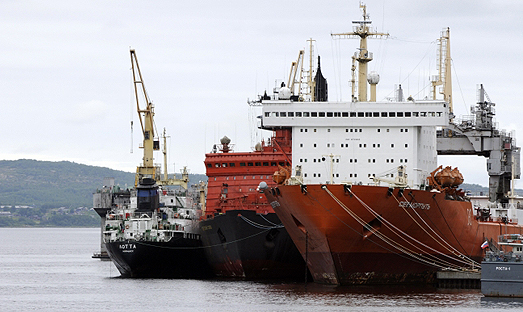
For a time it was used between Murmansk and Dudinka. Now it is considered to have no commercial future so it has been announced that it will be scrapped.
NEW CRUISE SHIPS
Carnival Corporation is to build two new cruise ships. One will be of 99,000 gross tonnage for Holland America Lines. The other will be of 135,000 gt for Carnival Cruise Lines. They will be built by the Italian Fincantieri yard, the first to be capable of carrying 2,660 passengers and due for delivery in Autumn 2015 and the Carnival ship to cater for 4,000 passengers and be delivered in Winter 2016.
Sailing
OLDEST NON-STOPPER ROUNDS CAPE HORN
On her third attempt to sail around the world solo non-stop, 70-year-old British grandmother Jeanne Socrates has rounded the Cape of Good Hope in her yacht, Nereida. She is attempting to become the oldest non-stop solo circumnavigator. She left Victoria, British Columbia, in October and successfully rounded Cape Horn in January. She is now setting a course to round Australia's Cape Leeuwin. She has already completed two previous solo-circumnavigations but during them had to put into port for repairs, after a grounding and a knock-down damaged her boat.
ABU DHABI IN VOLVO AGAIN
Ian Walker will skipper an Abu Dhabi entry again in the Volvo Ocean Race next year and there will again be a stopover in the United Arab Emirates capital. The route from Recife in Brazil to Abu Dhabi will take the teams and their brand new Volvo Ocean 65 racing yachts deep into the Southern Ocean. Abu Dhabi became the first Middle East entry in the last race.
Angling
WILL THIS WEAPON WORK AGAINST ALIENS?
Claimed to be the first of its kind in the world, Inland Fisheries Ireland, has produced what they hope will be a new weapon in the fight to stop the spread of Invasive aquatic species in Ireland - an "Individual Angler Disinfection Kit." Contained in a kit bag it comprises: 20 Virkon Aquatic (50g) tablets; a 500 ml plastic trigger spray bottle; disposable gloves; a stiff bristle brush for cleaning boots, etc.; a practical instruction manual; invasive species identification cards on a key ring; a metal 'Stop the spread of invasive species' badge and relevant invasive species literature. The kit is available from IFI and will cover disinfection for up to 20 fishing trips.
"Logistically it is impossible to provide disinfection facilities at every watercourse in the country to cater for all anglers so a different approach was require," says IFI, adding that anglers "recognise they must protect and not adversely impact the aquatic habitat or water quality."
"It will help ensure that pernicious aquatic invasive species are not spread by unsuspecting anglers as they move from one watercourse to another," says the organisation which has been fighting the growing menace of alien species arriving in Irish waters, a threat which has been rapidly increasing.
Marine Environment
THE SHARK 'WHISPERER'
The 'horse whisperer' is well-known (no burger comments!) but now there is the 'shark whisperer' filmed off Hawaii when a shark-conservationist swam up to a great white shark, patted it and even grabbed hold of its fin. By the name of 'Ocean Ramsey' she is a declared "advocate for shark preservation" and arranged for the video footage to be issued on Valentine's Day as "my expression of love for the creatures that are misunderstood and at risk of extinction!" There is some debate about the veracity of the video! "The shark acknowledged and observed me, while I peacefully and calmly allowed it to swim towards me and then accepting my touch, allowing me to dorsal and tail ride,' was her description of the experience.
Email: [email protected]
Regular news on Twitter: @afloatmagazine @TomMacSweeney
Farmed Fish, Harbour Master Retires & Shipping Revival
#islandnation – On THIS ISLAND NATION this week – farmed fish overtake the wild kind ... Cork Harbour Master retires ...Shipping revival predicted ... EU attempt to licence leisure boating stopped ... And much more marine news .....
FARMED FISH TO OVERTAKE WILD FISH IN HUMAN CONSUMPTION
This year more farmed fish will be eaten by humans globally than they eat wild fish, according to one of the leading figures in the fish farming industry, Aquaculture Executive of the Irish Farmers' Association, Richie Flynn. If this forecast turns out to be correct it will happen at a time when two State bodies involved in the Irish fisheries sector are contradicting each other.
Bord Iascaigh Mhara, the State commercial fisheries board; and Inland Fisheries Ireland, which has responsibility for angling development, rivers and estuaries; are at loggerheads over BIM's intention to develop salmon farming in pens in Galway Bay. Fish farming, aquaculture, particularly salmon farming has been opposed by angling interests for many years and is detested by salmon anglers. Scientific and environmental arguments have been used by both sides to justify their positions, with accusations by the angling side that lice problems are caused to wild fish stocks by the farming. Claims have been made that a massive disaster will face the Irish tourist industry because of the Galway development. This is rejected by BIM, promoting the development of aquaculture to counterbalance the drop in stocks of wild fish because of stock issues, quotas and other regulatory restrictions on the fishing industry and the economic value which, they say, fish farming could bring to coastal areas.
As always when 'positions' are taken, the 'middle ground' is ignored and agreement that would require compromise, is difficult to achieve.
There are realities to be faced on both sides -
• Fish farming is not going to go away and its development will be necessary for the food industry and production is likely to overtake the provision of wild-caught fish for human consumption.
• Angling is an important tourist and economic resource but salmon angling has over many years been the preserve of those who owned rivers, wealthy interests and individuals, or controlled by angling clubs and memberships, strictly licenced, with catches restricted for stock protection.
Anglers are a powerful lobbying group which brought an end to drift-net fishing and has tried to do the same for the more limited aspect of traditional draft-netting. Preserving wild salmon stocks is essential. However, so is the future of the aquaculture industry, the provision of food stocks for human consumption and employment in the fishing industry as an economic necessity in coastal areas as well as the tourist industry. This is reality.
Shipping – CORK HARBOUR MASTER RETIRES
After 33 years' service Captain Pat Farnan has retired as Cork Port's Harbour Master and Deputy Chief Executive.
He joined the port company in 1980 as Assistant Harbour Master and was President of the European Harbour Masters Association from 1996 to 1998.Prior to 'coming ashore,' Captain Farnan served with Irish Shipping Ltd., which he joined as a Cadet, then serving in all ranks on a wide variety of vessels trading worldwide. He left Irish Shipping having been Ship's Master for two years. In his Cork post he had also been Harbour Master of Bantry Bay since 2002.
"Amongst the highlights during my time at the Port of Cork was the return of cruise liners to Cork with the berthing of the QE2 at Ringaskiddy in 1990 and the development of t cruise liner facilities in Cobh," he said. The Tall Ships Race visit in 1991, the first time the event was ever hosted in Ireland, was also a personal highlight of my career."
Deputy Harbour Master, Captain Paul O'Regan, will take up responsibility as Acting Harbour Master and Captain Pat Murphy will be the Acting Deputy Harbour Master for the immediate future.
REVIVAL PREDICTED
The shipping industry will recover from what has been described as the present "glut" which has caused sharp falls in operating profits and the laying-up of vessels.
That is according to shipping magnate and billionaire John Fredriksen who controls an international fleet of oil, bulk and gas carriers through publicly-listed companies such as Frontline Ltd. (FRO), Golden Ocean Group Ltd. (GOGL) and Golar LNG Ltd. (GLNG). Speaking in Norway he said the market for oil and fuel tankers will be the first to recover, reviving over the next 15 to 20 months, when he predicted that international trade will pick up, with oil product carriers recovering business before the biggest crude carriers, for which demand would "take more time to rebuild."
Predictions in the trade are that daily earnings for product tankers could rise 11 per cent this year, with a 4.6 per cent rise for refined fuels. Shipping predictions are that demand for use of product tankers will increase but, in contrast, there will be too much capacity available in crude tankers and dry-bulk carriers.
BUT CONTAINER INDUSTRY HAS PROBLEMS
The container shipping industry may face a wave of mergers, it has been predicted, as companies try to lower costs. Hamburg-based Hapag-Lloyd AG, the world's sixth-largest container line, is in merger talks with Hamburg Sued, the No. 12, to create the world's fourth-largest carrier. The two lines together would have capacity less than only A.P. Moeller-Maersk A/S, CMA CGM SA and Mediterranean Shipping Co. While Hamburg Sued focuses on North-South trade, Hapag-Lloyd mainly operates on East-West lanes such as Asia to Europe. Carriers have struggled to make profits in the past two years because of an overcapacity of vessels, slumping demand and low freight rates.
Marine Leisure – EUROPEAN CONTROLS OF LEISURE BOATING STOPPED
I wrote in early January about the plans by Transport Minister Leo Varadkar to introduce a 'Vessels' Registration Bill' and expressed the view that caution should be the watchword when politicians want to impose regulations that control previously individual freedoms. At the same time I said there were reasons to introduce a register of boats in Irish waters, to aid safety and counteract criminal activities, such as drug-running for which our coastline has been used.
A Dutch Member of the European Parliament has been attempting to introduce a compulsory boat licence across the European Union to be enforced under the Recreational Craft Licence. This would require regular examinations of boat users for competency and appointment of inspectors to check boats for equipment, systems, etc., requiring owners to pay a State fee for their licences. The Dutch proposal would also have introduced a total ban on the use of red diesel in boats. The UK's Royal Yachting Association has fought a strong battle against the proposal and it seems that this has been successful.
VOLVO WILL END IN GOTHENBURG
The Swedish city of Gothenburg will be the final stop on the route for the 12th edition of the Volvo Ocean Race in 2014-15 and will also feature in the 13th edition under a two-race agreement between the city and the race organisers. Gothenburg is Sweden's second largest city and Scandinavia's largest port. 2014-15 will be the third time Gothenburg has hosted the Volvo Ocean Race and the second time it has staged the finale, following the success of 2005-06 when the Swedish yacht, ABN AMRO ONE, sailed into the port as overall race winner, with Ireland's Justin Slattery as Bowman. Gothenburg, on the west coast of Sweden, is the fifth host port to be revealed so far for the 2014-15 Volvo. The race will start from Alicante in Spain and call first at Recife in north/east Brazil. It will also visit Auckland in New Zealand before rounding Cape Horn for a second Brazilian stop in Itajaí. Further port announcements will be made over the coming weeks. Ireland will not be involved after twice hosting the race in Galway.
THE HOLY 'SEE'
The new Archbishop of Canterbury in the UK, 56-year-old Justin Welby, is a sailor. Suggestions have been made that he should call his boat, 'The Holy See'!
Marine Environment – FIRST UNDERWATER ROUND THE WORLD GLIDER
The first attempt is being made to send an unmanned robotic vessel around the world underwater to collect data about marine environments, such as water currents, temperature and conditions that reveal the effects of storms on fisheries and water quality. It is on its way from South Africa to Brazil at present, controlled by scientists from Rutgers University, a Mid-Atlantic partner of the United States Integrated Ocean Observing System. The journey of what has been named the 'Challenger Glider' could take up to a year. The name recalls 'HMS Challenger,' which in the 1870s was the first vessel to circumnavigate the globe on a marine research expedition. The 'glider' is regarded as a cost-effective, low-risk method of collecting marine data at various depths and could revolutionise ocean observation work.
"Information from it would provide scientists with a more complete picture of what is happening in the ocean and may help detect trends in ocean characteristic," say the scientists. "The results could enable better forecasting and information that helps to improve safety at sea and protect the environment."
EVER HEARD OF PERSEUS?
You may not have heard of it, but the European Union is funding a project called
'PERSEUS' which stands for 'Policy-oriented marine Environmental Research in the Southern European Seas. Two hundred scientists from 20 countries around the Mediterranean and Black Seas met in Barcelona last week as part of the project to share the results of joint work they carried out over the past year that summarised what they considered to be the main stress factors affecting the health of these two seas. Amongst these "stressors" they identified fisheries; maritime transport; land-based pollutants from industry and agriculture; oil, gas and mineral exploration and exploitation causing oil spills.
BEACHY HEAD DIY
Beachy Head is the highest chalk sea cliff in Britain, rising 540 feet above sea level.
It is marked by a famous red-and-white striped lighthouse beneath the cliff which is 141 feet high. In 2011 Trinity House, the UK lighthouse authority, announced that it could no longer afford to repaint the distinctive red-and-white stripes and that it would be left to return to its natural granite grey. Trinity House maintained that, because boats have high-tech navigational systems, the coloured day-marker stripes were no longer essential. However, a public campaign to keep the stripes was launched in October 2011 and has raised stg£27,000 to repaint the stripes.
Dangerous Seas – TWENTY DEAD
An indication of how dangerous life at sea can be and how little attention loss of life often gets came in the past week when a Russian fishing vessel capsized in the Sea of Japan and 20 Russian and Indonesian crew members went missing. Ten others were rescued by a passing freighter. Not a line of coverage appeared in the Irish media!
Marine Tourism
Disc-like structures above and even below the water have been proposed by a company called Deep Ocean Technology which apparently wants to build the world's first underwater hotel. Reports suggest this could be in the lavish location of Dubai. One part of the hotel would be t thirty feet under the surface and guests wouldn't need breathing apparatus. But they might need 'deep' pockets to afford the luxury!
Email: [email protected]
Regular news @afloatmagazine
Tom MacSweeney on Twitter: @TomMacSweeney



























